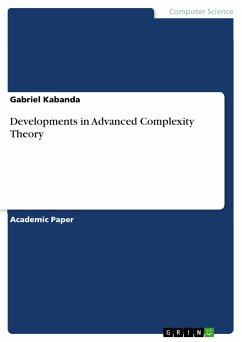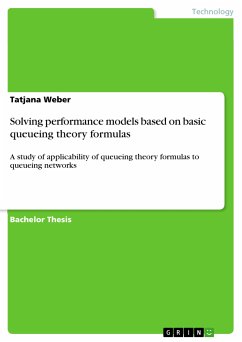Academic Paper from the year 2019 in the subject Computer Science - Software, grade: A, ( Atlantic International University ), language: English, abstract: This essay describes or analyses the content, style and merit of the developments in Advanced Complexity Theory. Complex, self-organising, adaptive systems possess a kind of dynamism that makes them qualitatively different from static objects such as computer chips. Complex systems are more spontaneous, more disorderly, more alive than that. In the past three decades, chaos theory has shaken science to its foundations with the realisation that very simple dynamical systems can give rise to extraordinarily intricate behaviour. The edge of chaos is the constantly shifting battle zone between stagnation and anarchy, the one place where a complex system can be spontaneous, adaptive, and alive. Chaos theory is the qualitative study of unstable, aperiodic behaviour in deterministic, non-linear, dynamical systems. It is a specialised application of dynamical systems theory. Chaotic systems require impossible accuracy for useful prediction tasks. Chaos theory often seeks to understand the behaviour of a complex system by reconstructing its attractor, and knowing this attractor gives us qualitative understanding. Chaos theory includes theoretical hypotheses that assert relationships of qualitative (or topological) similarity between its abstract models and the actual systems it studies. Dynamics is used more as a source of qualitative insight than for making quantitative predictions. Its great value is its adaptability for constructing models of natural systems, which models can then be varied and analysed comparatively easily. Chaos theory is the quantitative study of dynamic non-linear system. Non-linear systems change with time and can demonstrate complex relationships between inputs and outputs due to reiterative feedback loops within the system. These systems are predictable but their behaviour is exquisitely sensitive to their starting point. Chaos is a sub-discipline of complexity. Complexity theory is the qualitative aspect drawing upon insights and metaphors that are derived from chaos theory.
Dieser Download kann aus rechtlichen Gründen nur mit Rechnungsadresse in A, B, BG, CY, CZ, D, DK, EW, E, FIN, F, GR, HR, H, IRL, I, LT, L, LR, M, NL, PL, P, R, S, SLO, SK ausgeliefert werden.









